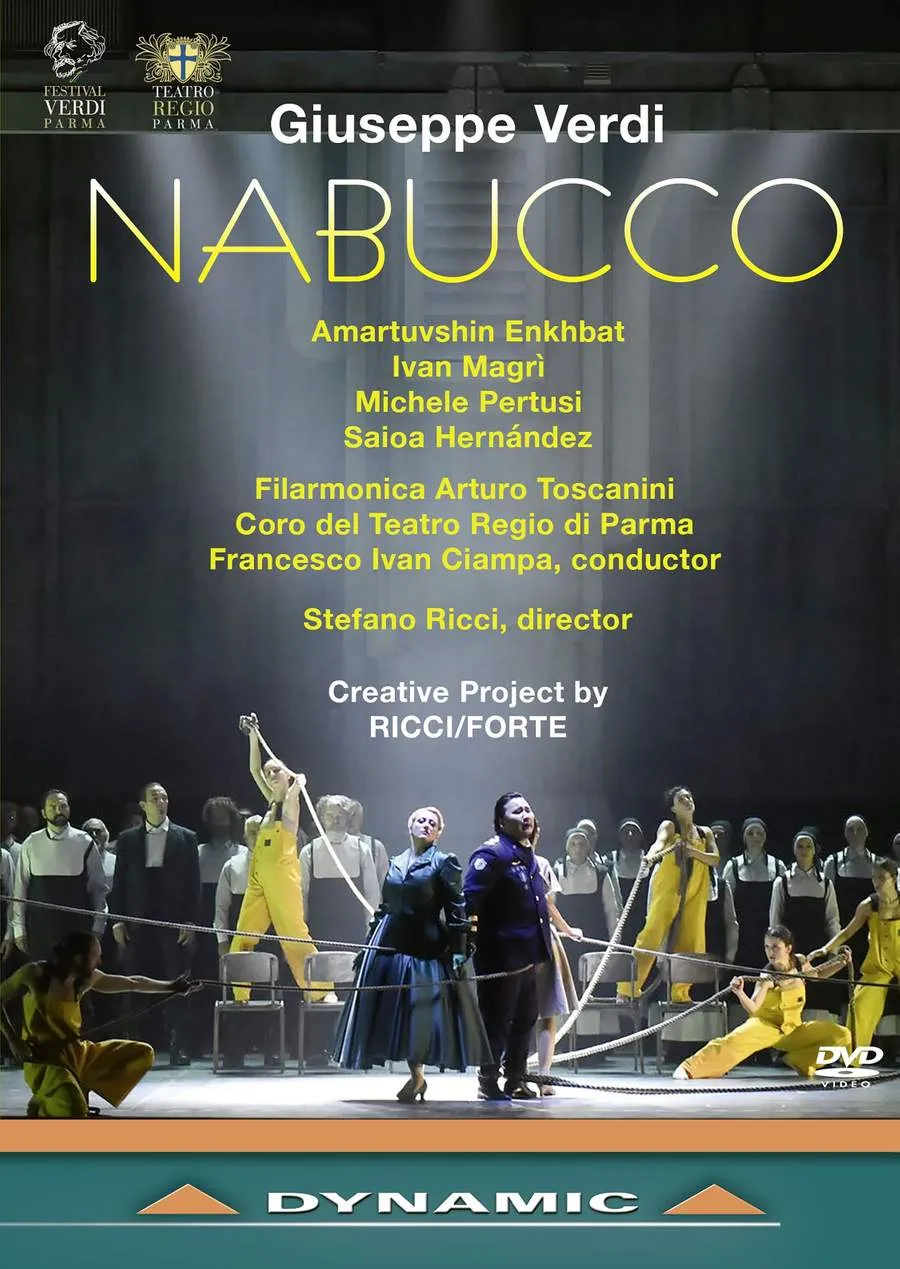
Verdi Nabucco Amartuvshin Enkhbat, Ivan Magri, Michele Pertusi, Saioa Hernandez, Annalisa Stroppa; Arturo Chacón-Cruz et al; (voices); Toscanini Philharmonic; Coro del Teatro Regio di Parma/Francesco Ivan Ciampa; Dir. Stafeno Ricci (Parma, 2019) Dynamic DVD: 37867 Blu-ray: 57867 146 mins
Staged at the Teatro Regio, Parma, this production formed part of the Verdi Festival 2019. It’s credited to director Stefano Ricci of the creative duo Ricci/Forte, whose experimental stagings (including opera) have been acclaimed internationally over the last 14 years; this particular show, however, was apparently heavily booed on the first night.
One can comprehend the audience’s frustration. The original confrontation between Jews and Assyrians disappears. Moving the plot from Biblical times to a kind of blend of all possible Dystopian futures – even The Handmaid’s Tale gets a look in – the staging is frequently uncertain in execution and often obscure. The more obviously contemporary plight of refugees, however, is clearly referenced. We’re on board a large ship, where refugees – initially arriving wearing lifebelts – are constantly manhandled by the military. (There’s nothing in the booklet, incidentally, to explain these novel plot elements.)
In a short filmed interview the creators pinpoint the future date of 2046, when society has been ‘annihilated by a state that takes away our freedom, especially our freedom of thought, where also creativity and imagination are banished.’ Two ‘theatrical intermezzos’ – devoid of music and the second, at least, theatrically inscrutable – break up the action. Ultimately this is a crude, cliché-ridden, one-dimensional staging.
Musical values are much higher. Amartuvshin Enkhbat’s striking presence and strong, disciplined singing mark Nabucco out as a standard military dictator. Though not always in perfect vocal control, Saioa Hernández is an energetic, grand-scale Abigaille.
Costumed as a priest, Michele Pertusi offers a Zaccaria of tonal grandeur and nobility. Ivan Magrì’s Ismaele supplies fluency and some sensitivity while Annalisa Stroppa delivers a focused Fenena. Conductor Francesco Ivan Ciampa gives an authoritative account of the score aided by an orchestra of commendable quality and an impressive chorus.
George Hall
